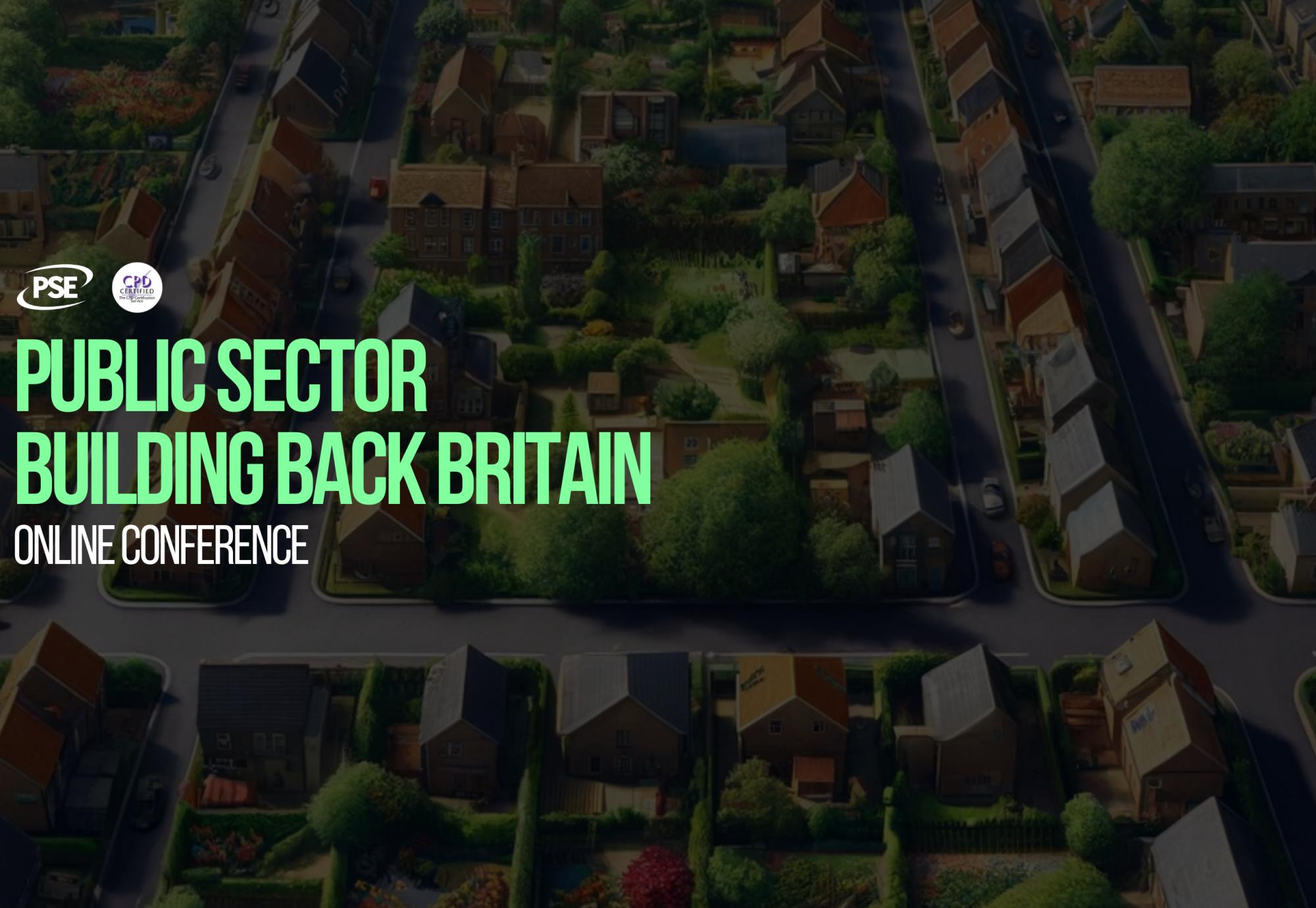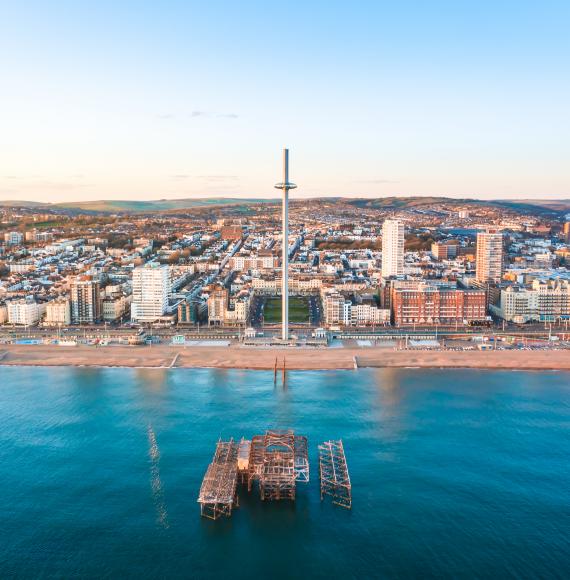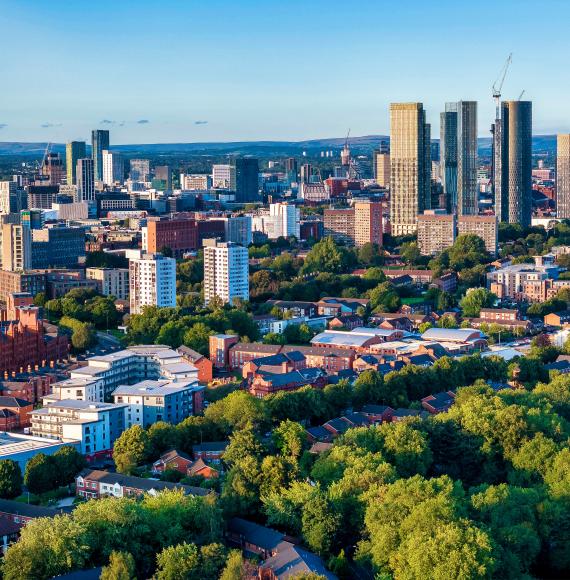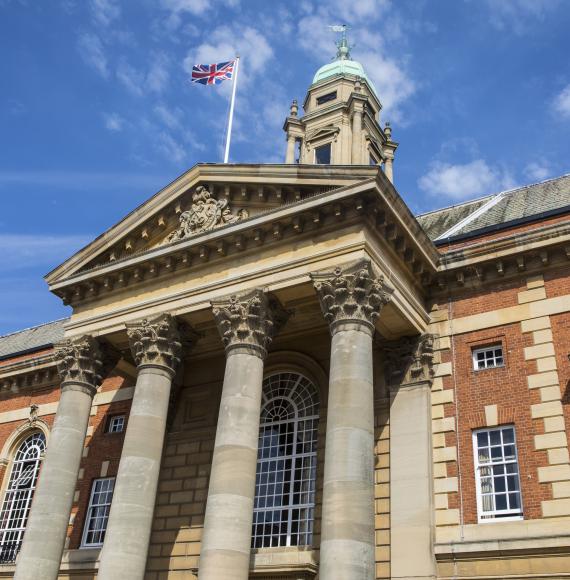Back when Boris Johnson was Prime Minister of the United Kingdom, the government committed to a mission of ‘levelling up’ the country. With the aim of improving opportunities and reducing depravity, the task of Levelling Up was one that ran through a lot of the government’s work right up until the 2024 General Election.
As Keir Starmer took office as the new Prime Minister, it became clear that the mission would remain, however the Labour government stripped away the Levelling Up branding opting for this to become a mission build back Britain. To honour this new name for an old challenge, Public Sector Executive hosted the 2024 Building Back Britain Online Conference, bringing together leaders and experts from
The conference kicked off with a keynote speech from Leeds City Council Leader Cllr James Lewis. As the opening speaker of the day, James told attendees of the work that is being done in Leeds as the city looks to continue with its growth, with this covering a range of areas such as delivering more housing, increasing the city’s cultural offering, and developing the economy of the city centre and its surrounding area.
“Our economy is nationally significant – we are the economic driver of West Yorkshire and the wider area.” – Cllr James Lewis
Better public transport
The first leaders debate of the day focused on the improvement of public transport, and how improvements to transport can drive regeneration and economic growth – a key part of the government’s building back mission.
On hand to discuss the above, and how all of this work to improve public transport can be done in a sustainable, environmentally-friendly way that delivers for communities, were Cllr Neil Clarke MBE (Nottinghamshire County Council), Phill Bibby (Hertfordshire County Council), Sarah Spink (Midlands Connect), and Helen Ellerton (West Yorkshire Combined Authority).
“Mass transit has a role to play… it is inflexible one you put something on a rail, but it’s about how you embed it and build on it for the wider transport network.” – Helen Ellerton
Pride of place
The new government’s commitment to progressing devolution is giving local leaders new powers to shape their areas, and this can have a huge impact on communities’ pride of place. As leaders allocate funding to projects that will deliver for their area, this panel looked at how pride of place can drive regeneration, and vice versa.
Finlay Gordon-McCusker (Stoke-on-Trent City Council), Michael O’Doherty (Local Partnerships), and Sean Traynor (St. Helens Council) came together to pass on their expertise in the second panel discussion of the day.
“Devolution is really going to change how we think about pride of place.
“I think that, on the whole, giving local people more power to make their own decisions about regeneration and instilling that pride of place at the heart of their communities is a good thing.”
Better housing
The third leaders debate of the day saw housing brought into the discussion. As the government makes it its mission to deliver one and a half million new homes over the course of the next five years, the push for more good, affordable housing is going to heat up, including around issues such as the green belt, carbon emissions, and how to make sure that developers can deliver.
In order to touch on all of these issues, Cllr Tom Renhard (Bristol City Council) and Brett Leahy (London Borough of Enfield) came together to share their experiences and insights.
“There’s always a question of what meaningful (community) involvement in planning looks like.
“It’s about how you’re bringing communities with you, and what benefits communities are going to see from developments.”
Better skills
As the government looks to grow the economy, and deliver more opportunities in communities around the country, one of the key areas where success can be found is through the development of skills. As communities upskill, better job opportunities can be offered, growing levels of prosperity in areas that may have once been more deprived.
With a particular focus on how digital skills can be improved in the UK, the penultimate panel of the Building Back Britain online conference brought together Will Plant (Cambridgeshire County Council) and Penny Syddall (Dorset Council) together.
“In those regions, we need those jobs to be available and we need to be able to support small businesses and startups to be able to keep those innovative jobs, and keep the talent.” – Will Plant (on talent being drawn to larger cities)
SAM CHAPMAN-ALLEN KEYNOTE
The second keynote speech of the day saw the delegates addressed by District Councils Network Chair Sam Chapman-Allen, on the topic of devolution and how the government should not ignore the contribution of unitary councils. This comes at a particularly important time, as the government is trying to agree devolution deals for councils up and down the nation.
“Devolution needs to be bottom-up, allowing those place leaders to work with government to understand what powers and money it needs to have devolved (in order) to thrive.” – Cllr Sam Chapman-Allen
Better environment
With all of the plate-spinning required in achieving all of the current goals for local and central government, it is important to make sure that environmental goals underpin as much of the work being done as possible.
As the push for net zero carbon emissions continues, the final panel of the day featured key insight from Vicky Kingston (Local Partnerships), Bret Willers (Coventry City Council), and Gary Hayes (Mersey and West Lancashire Teaching Hospitals NHS Trust).
“The most important factor for local authorities is that they’re responsible for a lot of land… It’s about making sure that, when you’re looking at decarbonisation policies, they align with biodiversity strategies.”
In order to hear all of the important insight from Public Sector Executive’s penultimate online conference of 2024, you can watch the entire event on demand here.



















